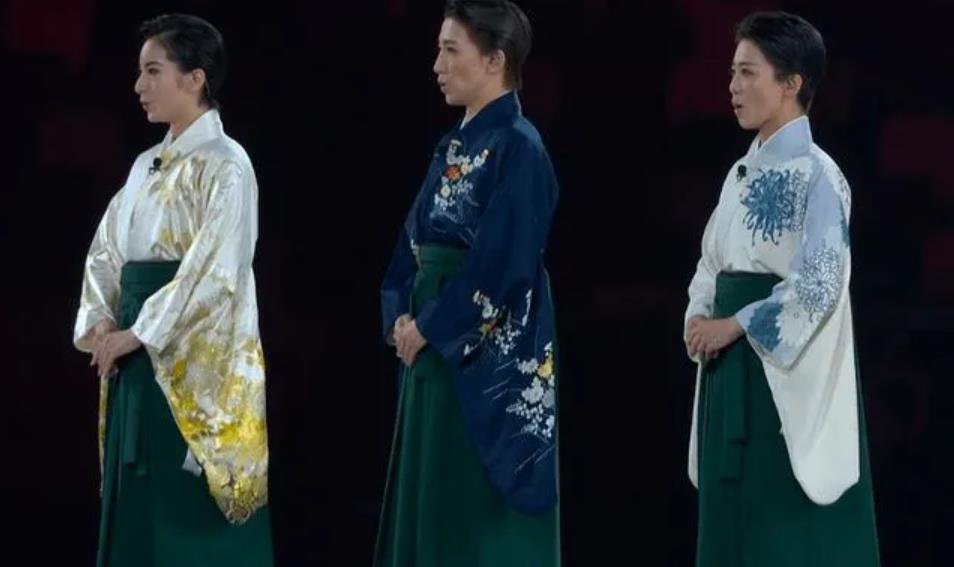
At the closing ceremony, many performing artists, including Japan's national treasure Takarazuka Revue and the Tokyo Ska Paradise Orchestra, presented wonderful song and dance performances, with songs like "Ode to Joy" and the opening theme "Gurenge" from the anime "Demon Slayer" resonating in the venue. In addition, traditional programs unique to various regions of Japan, such as taiko performances and Bon Odori dances, were also featured at the closing ceremony.
Although Japan still lags behind most developed countries in terms of gender equality, there was a moment at the Olympic closing ceremony that paid tribute to women's empowerment, with the all-female Takarazuka Revue singing the Japanese national anthem. Unlike kabuki, where male actors play both male and female roles, Takarazuka assigns all roles to women. However, critics argue that the business side of the troupe is still controlled by men.
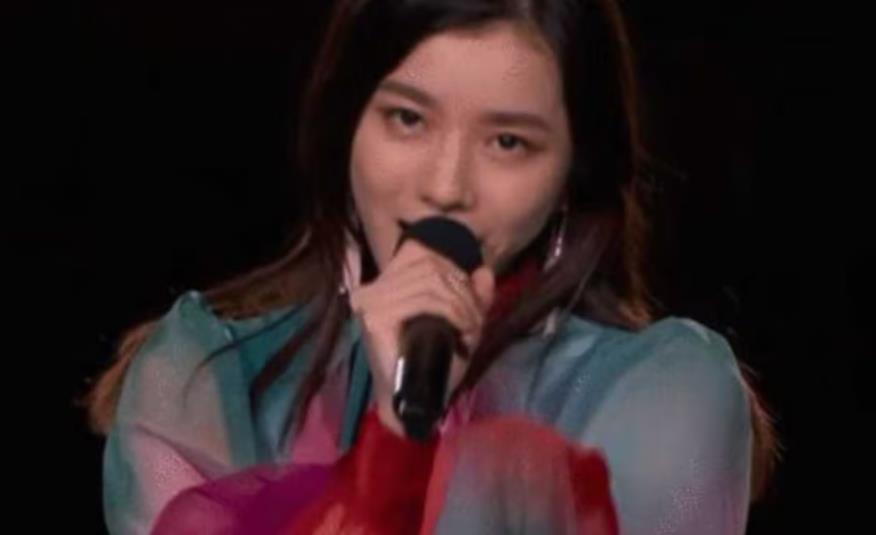
Milet made a stunning appearance, performing the song "Hymn to Love."
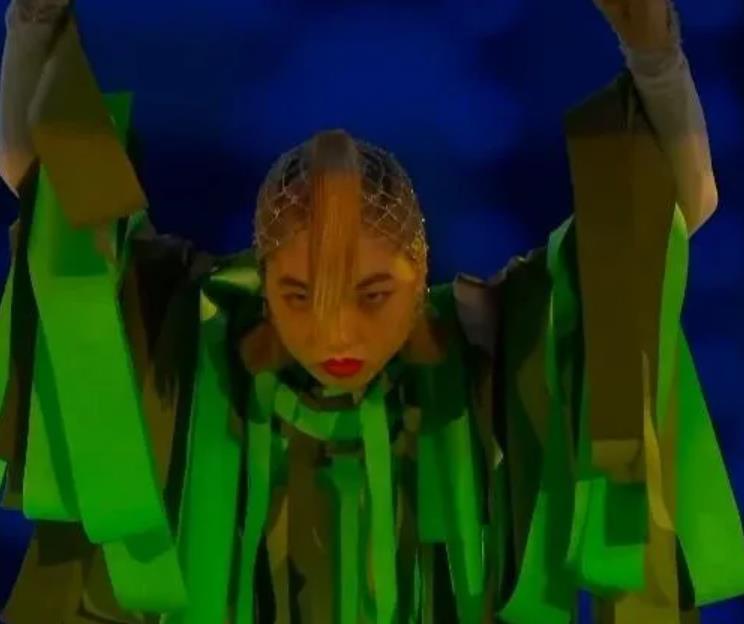
AOI YAMADA's dance continued to express the theme of the COVID-19 pandemic, a dance mourning the deceased. The stage was surrounded by Japanese lanterns, and the green costumes symbolized trees and the earth, preserving tradition.
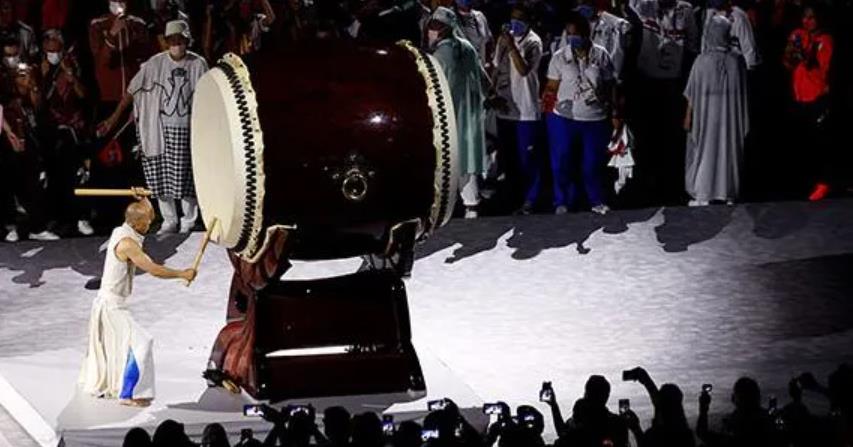
Taiko performance
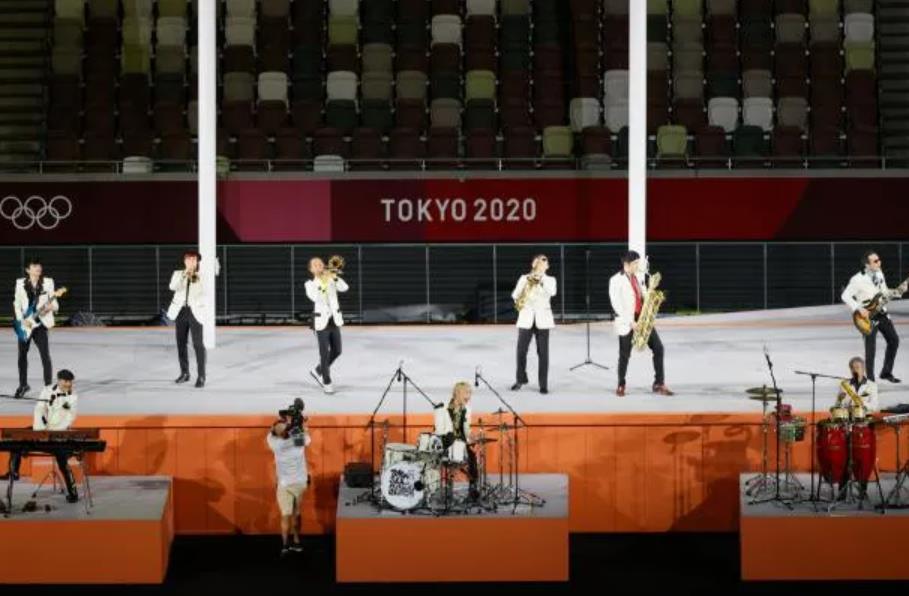
The Tokyo Ska Paradise Orchestra performed "Gurenge."
A short film showcased four traditional dances from different parts of Japan: the "Ainu Ancient Dance" from Hokkaido, the "Ryukyu Taiko Dance" from Okinawa, the "Nishima Onai Bon Odori" from Akita, and the "Gujo Odori" from Gifu.
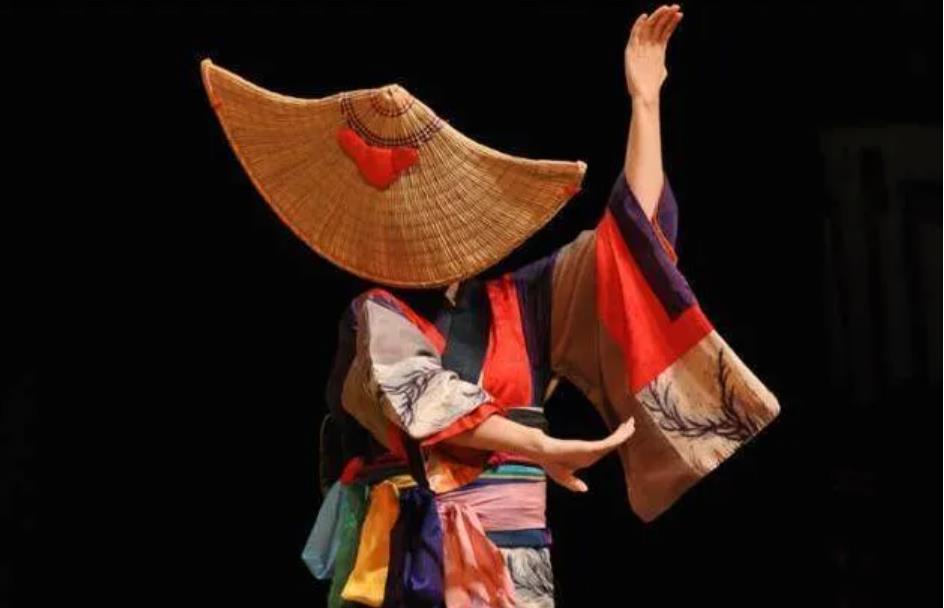
Nishima Onai Bon Odori
The public opinion surrounding the Tokyo Olympics was filled with malice towards Japanese athletes, with some people exhibiting a natural aversion—such as attacking Mima Ito's strange smile, criticizing her serving posture, and questioning why she couldn't smile after winning or losing. There were no major issues with the refereeing of Daiki Hashimoto, and the deduction of points for Sho was within the rules. Demonizing without reason is just boring.
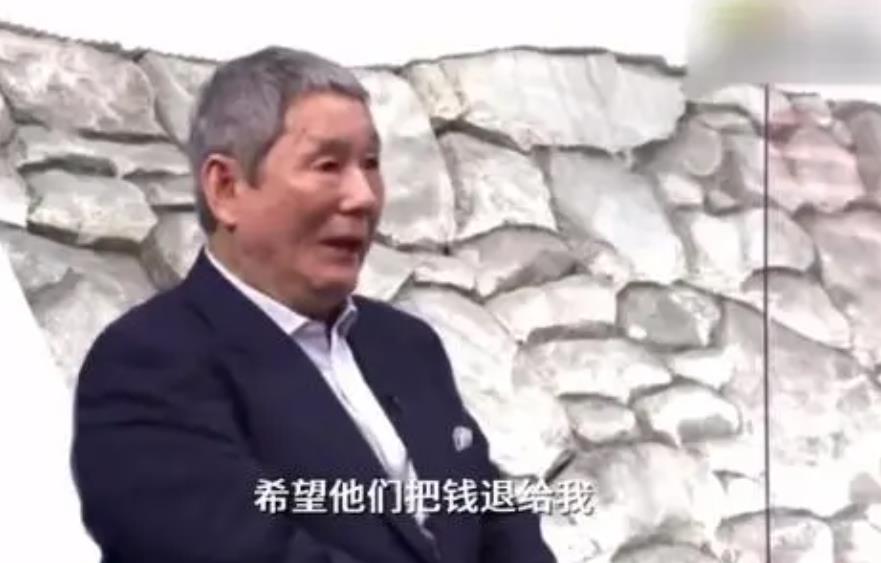
Takeshi Kitano criticizes the Olympics
There were also many rumors circulating, such as "Takeshi Kitano was arrested by Japanese police for criticizing the Olympics," with screenshots showing logos from Japan's Jiji Press and AFP. However, a search on Japanese websites revealed no such news; it was fabricated by some Chinese speakers who understand a bit of Japanese. Regarding gymnast Tang Qianjing using the song "Jiu Er," the statement from the organizing committee chair Seiko Takahashi was also false; she made no comments about the song choice. The committee's goal was to ensure the smooth running of the Olympics, and it was impossible to make any biased statements at such a critical moment.
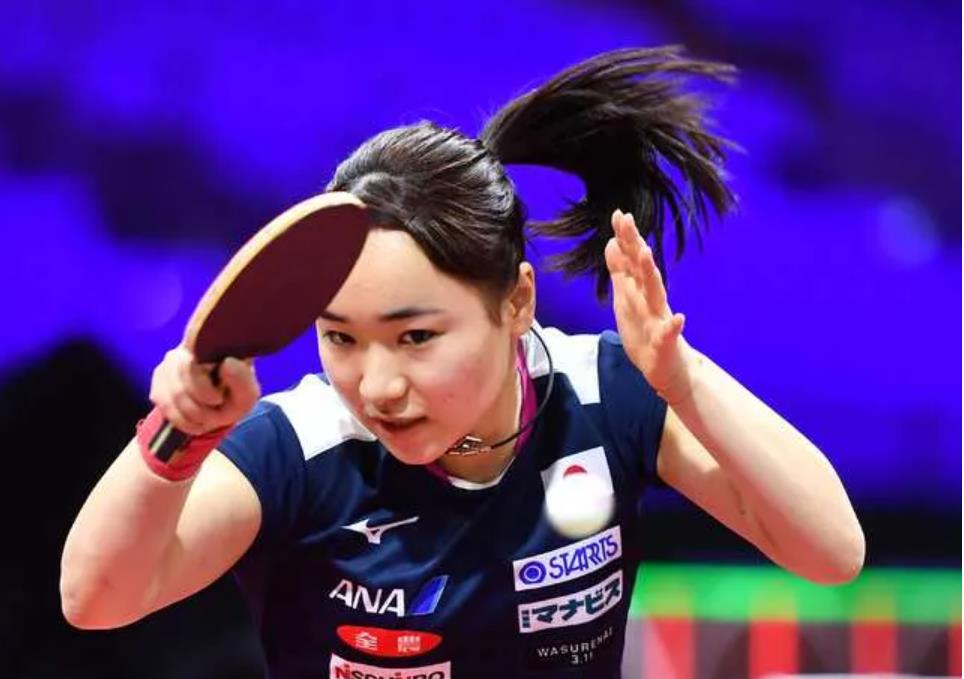
The controversial table tennis player Mima Ito
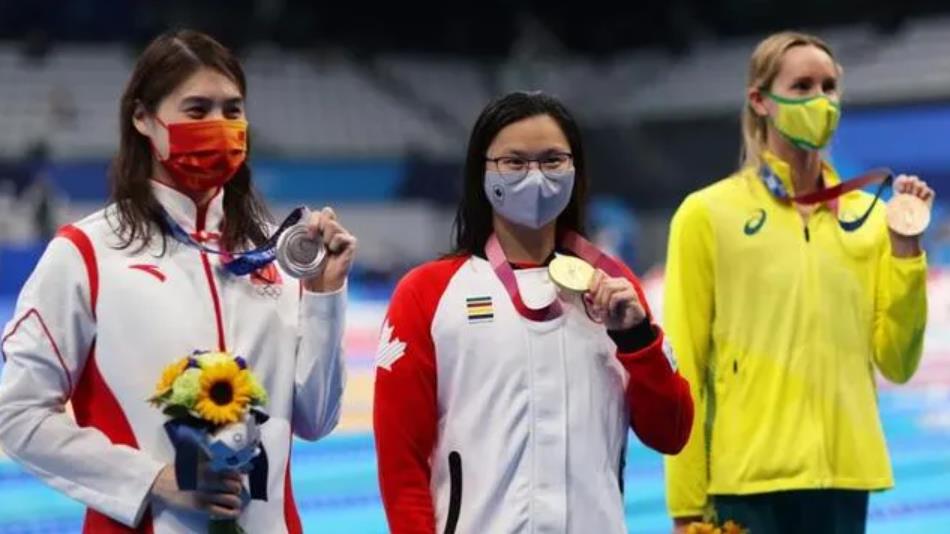
Canadian Chinese athlete McNeil won the gold medal in the 100m butterfly, with some netizens commenting, "The girl abandoned by Chinese parents was raised by Canadian parents to become a world champion, defeating the Chinese."
The public opinion targeting Chinese athletes is also baffling. Badminton player Chen was praised as "the most beautiful Chinese language" for cursing on the court (during a match against South Korea). What kind of values are these? A female reporter's repeated questioning was a form of appearance shaming and sexual discrimination against shot put champion Gong Lijiao. The first gold medal of the Olympics went to Yang Qian, who revealed her obsession with collecting Nike shoes, and immediately faced criticism! Quan Hongchan, who won the women's 10m diving gold medal at the Tokyo Olympics, innocently spoke about her family's difficulties and her mother's illness. After winning, many unfamiliar relatives came to her hometown, and hospital leaders reassured her family, while internet celebrities rushed to capitalize on her fame. Just imagine what would have happened if she hadn't won the championship?
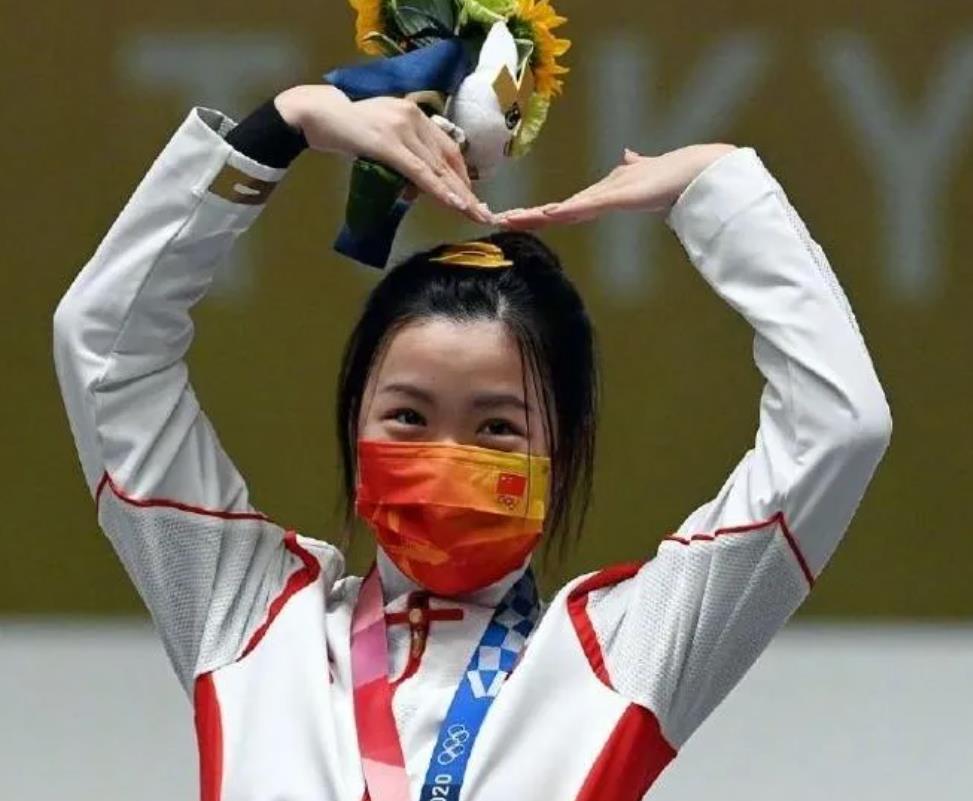
Shooting champion Yang Qian

Weibo post insulting Yang Qian
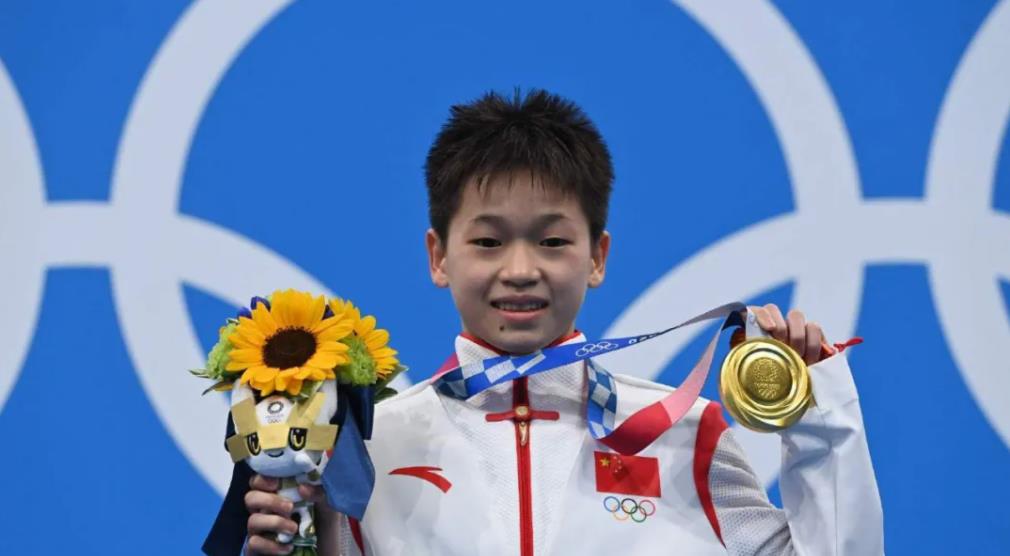
Quan Hongchan wins gold in the 10m diving event
The Tokyo Olympics, held under the global pandemic, naturally had its limitations and uniqueness. Given the different national conditions, both the scale and entertainment value should not be exaggerated. With "no audience" in the venue, there were no tourism and surrounding benefits. The opening ceremony felt somewhat bland, and Takeshi Kitano's criticism comes from his own perspective; he also has the freedom to criticize. The opening and closing ceremonies of the Olympics can have different styles, and different countries have different cultures. Due to varying national conditions and consciousness, different approaches will be taken. Viewing it with tolerance and understanding, the Olympic opening should be seen as an opportunity for athletes to gather and learn from each other, rather than imposing one's own views on unfamiliar foreign cultures and things, or mocking and ridiculing results that do not meet one's expectations.
I truly hope that fewer people who do not understand sports or Japanese culture will "speak carelessly." It is one thing not to appreciate Noh, Butoh, or kabuki, but to ridicule the environmentally friendly extraction of medals without understanding the competition rules is somewhat ridiculous. Mourning for those who have passed due to COVID-19 has a commemorative meaning; Japan, in its own way, cleanses the filth and disasters for the world's people, which is a groundbreaking act with special significance. Under the premise of a rampant pandemic, insisting on "grand splendor, uniformity, and peace" is indeed inappropriate. This Tokyo Olympics advocates gender equality, racial equality, and equal human rights for minority groups (LGBTQ+ and disabled individuals), which carries profound significance, especially in not casually insulting women.

Anna participated alone in the women's road cycling event at the Olympics for the first time, without a coach, teammates, or a team doctor, yet she crushed Dutch star and former world champion Annemiek van Vleuten.

A 41-year-old night-shift nurse also participated in the Olympics; Iranian athlete Foroughi Javadi, who overcame COVID-19 twice, successfully won the gold medal in the men's 10m air pistol final.

An incredible scene occurred in the men's high jump final: Qatar's Mutaz Essa Barshim and Italy's Gianmarco Tamberi both won gold medals. It is reported that both jumped 2.37 meters, making it impossible to distinguish between them. When the organizers planned to have them jump again to determine the winner, they decided to share the gold medal. This marked the first time since 1912 that two champions stood on the podium together.
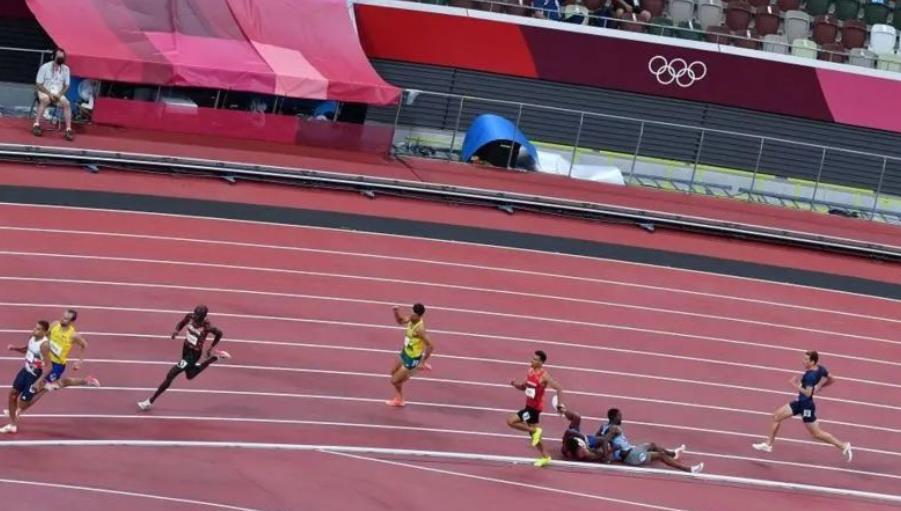
American athlete Isaiah Jewett and Botswana's Nijel Amos fell during the 800m race; they helped each other up and jogged back to the finish line together. They finished 54 seconds behind the champion, but after the race, they told reporters that time no longer mattered.

Argentinian fencer María Belén Pérez Maurice lost the match 12-15, marking the end of her third Olympic journey, but she did not leave empty-handed. During a live post-match interview, her coach Lucas Guillermo Chausse, with whom she has been in a relationship for 17 years, held up a sign behind her: "Will you marry me? Please!" This was Chausse's second proposal; his first in 2010 was not accepted. But this time, Maurice said, "I do."
Through Olympic competitions, we understand our opponents and other countries, gain a clearer understanding of ourselves, seek common ground while reserving differences, and enhance ourselves with a more graceful and open mindset in facing the world, which is the most important. The Olympics is not about the number of medals but about the beauty of sports, the beauty of will, and the beauty of humanity displayed by athletes. Their touching stories and details on the field can inspire the audience and ignite the motivation for life, especially for athletes from small or weak countries, those from war-torn or chaotic nations, unknown individuals striving for success, older athletes, and those who bravely fight against adversity. From them, we see the shining of the soul, which helps us face the severe pandemic and the pressures of survival, breaking free from our own narrow-mindedness and isolation. After such reflection, we can better understand the essence of the Olympic spirit.
